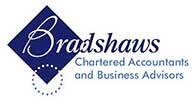HMRC issues reminder about early December pay dates
Many businesses pay their employees early in December. However, for employees who also claim Universal Credit, this can cause a problem. HMRC has explained how to avoid it. What should you do?

In its latest employer bulletin, HMRC issued a reminder to employers that pay their employees earlier than usual in December. Employees who are in receipt of Universal Credit can be adversely affected if the correct reporting procedure is not followed, as the system for reporting income may include two payments for a single assessment period. As Universal Credit entitlement is assessed on an ongoing basis, this can reduce or even remove their entitlement altogether, causing hardship. Additionally, the reporting of zero earnings in the subsequent assessment period can mean that entitlement to the work allowance is lost in that period.
HMRC says that in order to avoid the issue, the employer should always use the regular contractual pay date in the full payment submission (FPS) - even if the pay date is earlier or later than usual. So, for December a business that usually pays employees on the last working day of the month should use 31 December on the FPS. Doing this will ensure the problem of double counting is avoided.
Related Topics
-
Who can't yet sign up for MTD IT?
Making Tax Digital for Income Tax (MTD IT) becomes mandatory from April 2026 for sole traders and landlords with qualifying income over £50,000. However, HMRC’s current guidance makes clear that not everyone can sign up yet. If you are preparing early, are you actually eligible?
-
MONTHLY FOCUS - PROFIT EXTRACTION PLANNING AHEAD OF 5 APRIL 2026
The end of the 2025/26 tax year is fast approaching. In this Monthly Focus we look at ways to get money out of your company tax efficiently, and consider whether limited is still the way to go for your business.
-
HMRC updates advisory fuel rates from 1 March 2026
HMRC has published the latest advisory fuel and electric rates (AFRs) for company cars, effective from 1 March 2026. Several rates have changed since the previous quarter. What should employers be aware of?

 This website uses both its own and third-party cookies to analyze our services and navigation on our website in order to improve its contents (analytical purposes: measure visits and sources of web traffic). The legal basis is the consent of the user, except in the case of basic cookies, which are essential to navigate this website.
This website uses both its own and third-party cookies to analyze our services and navigation on our website in order to improve its contents (analytical purposes: measure visits and sources of web traffic). The legal basis is the consent of the user, except in the case of basic cookies, which are essential to navigate this website.